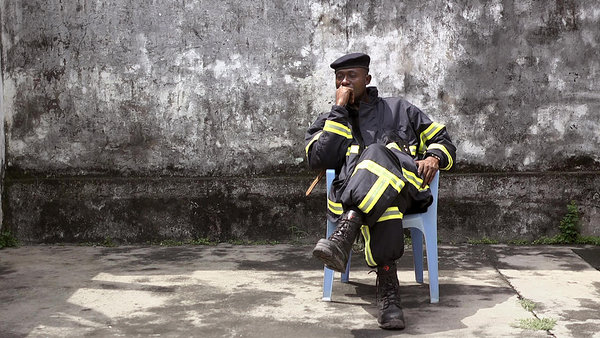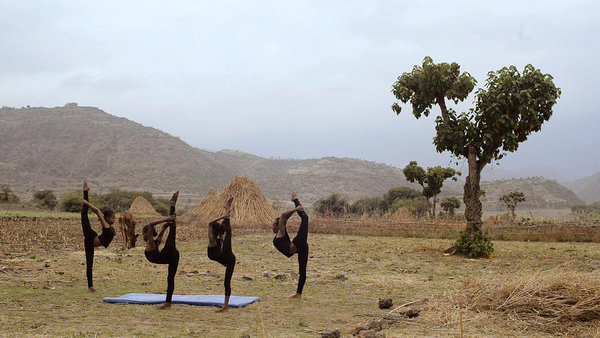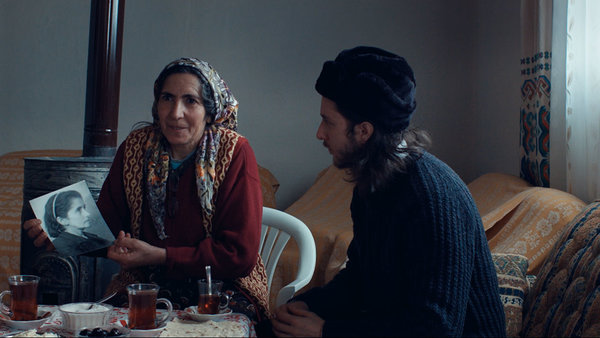13th World Film Festival - some reflections April 01, 2016
Robert McNamara,
master student in audiovisual ethnography, Tallinn University
Of the 11 films I viewed at Maailmafilm, or the 13th Tartu World Film Festival, there were several gems. In particular, Elephant’s Dream by Kristof Bilsen, Leaving Africa by Iiris Härmä, Circus Debere Berhan by Lukas Berger, Stony Paths by Arnaud Khayadjanian, Absent by Matthew Mishory, and Time Suspended by Natalia Bruschtein were particularly striking. The former 3 films, shot in Congo, Uganda, and Ethiopia, respectively, showed a world mostly unseen by the Western eye, while the latter 3 films, shot in Armenia, Moldova, and Mexico/Argentina, respectively, explore tragic places in danger of being lost to the opaqueness of the past.
While Elephant’s Dream surreally captured a bleak seemingly post-colonial world at a literal standstill, wracked by the stasis of poverty and corruption, Leaving Africa followed the lives of unlikely heroes in Uganda trying to spread local sex and equality education within a larger national homophobic environment. Unexpectedly, this film also unfolded as a beautiful love story between two women who cohabitated as friends for over 2 decades, demonstrating that platonic love may sometimes transcend sexuality in its emotional depth. The blindness of the Ugandan Government's focus on demonizing homosexuality, while ironically ignoring the importance sexual education, is only highlighted by the beauty of the friends' living relationship, where sexual preference is appreciated as wholly irrelevant to finding true humanity, or to helping make society a better place. Circus Debere Berhan is a short film, and while not as emotionally engaging as the previous two, it was extremely uplifting in its simplicity and beauty. I had a smile on my face through most of the shots of the rural acrobats. Something about the film was as surreal as it was transcendent.
Stony Paths and Absent dealt with genocide in Armenia in 1915, and Moldova during WWII, respectively; and Time Suspended explored crimes against humanity, the desaparecidos, in Argentina during “the dirty war.” The films explored these subjects and themes through the lens of the malleability of history and memory. Stony Paths followed the descendant of a survivor of the Armenian genocide in his quest to confront modern day residents now living in the region of the deaths. The descendent, who is the filmmaker himself, shows incredible bravery in confronting the people living there on an intimate level about history, as they are living in Turkey, where it is still a crime to refer to this event as genocide. The Turkish cognitive dissonance on display in the film gives great insight into not only how one might be influenced legally to deny a genocide’s occurrence, but in the same sense and by the same mechanism, by analogy, also participate in one.
Absent deals with several differing reconstructions of the past from different authorities on the subject of Jews being murdered, put into concentration camps, and shipped off in cargo trains in a small town in Moldova during the second World War. The differing accounts of history leads one to ponder how easily historical truth can be manipulated. Time Suspended follows this theme with its protagonist, a mother to 3 children kidnapped and murdered by the State, as she falls into dementia, losing her ability to remember her own past, and yet having to continually relive it, when the filmmaker, her granddaughter, repeatedly re-teaches her grandmother her history of losing the children she can’t remember through photographs, videos, and personal letters. Of the three films, this one is by far the most personal and emotionally devastating. It is truly heartbreaking on so many levels. What I found most profound was the grace of the the main character, who having lost her memory almost completely, still maintained aspects of her personality as the same person courageous enough to stand up against a totalitarian state; maintaining her grace and courage through the darkest nightmare.


